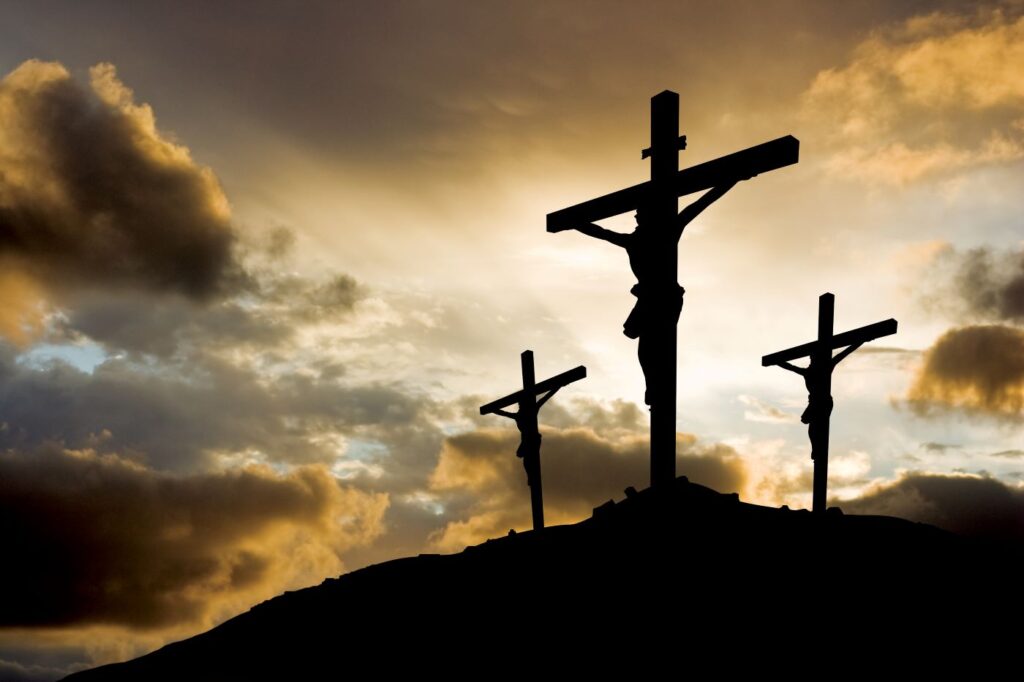In its Declaration on Religious Freedom, Dignitatis Humanae, the Catholic Church gave its answer to the question whether the force of civil law may make baptized Christians, or anyone, conform to Catholic teaching.
In the Middle Ages, many bishops endorsed such means, including the execution of heretics and bloody religious warfare. More recently, and in keeping with the more ancient view of the Church, popes have taught forcefully that, although temporal government must acknowledge God’s supreme authority over human affairs, it is not its place to enforce prohibitions of sins beyond murder, theft, and other crimes against the natural law.
Dignitatis Humanae took the latter position. It reaffirmed that the “unique true Religion subsists in the Catholic and Apostolic Church,” and that every person and society is bound to seek truth “and once it is known, to embrace and keep it.” Nevertheless, it pointed out that “the truth does not impose itself otherwise [than] by the force of the truth itself” on “the conscience of men.” Therefore, “for a public authority, through force or fear or other means to impose on citizens the profession or rejection of any religion, or to impede anyone from entering or leaving a religious community” is, in the original Latin, nefas or “absolutely forbidden,” as the official English translation of canon law translates the word. (Canon law applies the word nefas to certain especially grave sins, such as a priest’s divulging publicly a penitent’s confession or his consecrating the Eucharist outside the Mass.)
Much ink has been spilled over the Declaration’s philosophical argument. But perhaps more interesting, and compelling, is its argument from the deeds and words of the founder of Christianity himself. Anyone who has studied the Gospels—or read any of the many popular commentaries on them—cannot but conclude that Jesus intended to build his kingdom only, as Dignitatis Humanae says, “by witnessing to the truth” and “by the love whereby [he], lifted up on the cross, draws all men to Himself.”
Start your day with Public Discourse
Sign up and get our daily essays sent straight to your inbox.Few instances in Jesus’ life exemplify his rejection of the use of force, even against those who break faith, than his treatment of the greatest apostate from Christianity, Judas, whose betrayal Christians traditionally remember today. That pivotal drama of the Gospels has much to teach us about the Christian understanding of religious freedom.
The Suffering Servant
Throughout his life, Jesus refused to present his Church as a kingdom like those of the earth. He distinguished the “things of God” from the “things of Caesar.” At his trial he told the Roman governor, Pontius Pilate, “My kingdom is not of this world.” When the people tried to proclaim him king after he miraculously multiplied bread and fish, he fled and hid himself.
He let himself be publicly called “king” only as he hung dying on the Cross, under a sign that read, “The King of the Jews.” The model of kingship he gave his Church on earth—in the age before his Second Coming—was not of glory and triumph, but of the prophet Isaiah’s Suffering Servant. Jesus, seeking to fulfill Israel’s calling to redeem the world through suffering, said he came “not to be served, but to serve, and to give his life as a ransom for many.”
That Christians throughout history have found it difficult to accept their master’s rejection of earthly kingship is no surprise. It was a struggle even for those with whom he lived.
At the time of Jesus’ public ministry, his own Jewish people had been living for seventy-five years under Roman rule—the latest in a long history of humiliating foreign occupations. Many were eager to throw off pagan rule for good. The Galilean rabbi’s miracles, teaching, and power over the minds and hearts of the masses, suggested he might be the promised Messiah, the one to lead Israel’s armies to victory over the kingdoms of the world.
His own chosen Apostles shared this hope. During their journey to Jerusalem before his death, James and John urged their teacher to destroy by fire the heretical Samaritans who refused to receive him—and he rebuked them. At the Last Supper the Apostles fought over which of them would be greatest in the coming kingdom, and their leader reminded them that true power is shown in humble service.
The Traitor
Most of the Apostles loved their master more than their dreams of earthly glory; they never thought of abandoning him for the more politically ambitious parties of Israel. But Judas was different. Perhaps more savvy than the others, he became disillusioned with Jesus’ non-political message and decided he wanted out. Probably wanting recompense for the years he had given to the Nazarene’s cause, apparently to no use, he made a deal with the authorities who feared Jesus’ influence over the people: for a price, Judas would show them where to find their quarry, apart from the crowds who would have fought off his arrest.
Christians believe that the man they call Christ, being the omniscient God, could tell the moment when Judas had begun to turn down the road to sin; but Jesus did not expel him then, or publicly single him out. He warned Judas by declaring to the Apostles, “Have I not chosen you all, and yet one of you is a devil?”—a statement too general to raise suspicions against any particular person, but enough to prick the guilty man’s conscience. Even when Judas was about to leave the Last Supper to round up the guards for the arrest, Jesus simply said, “What you are going to do, do quickly,” and none of the Apostles suspected anything. The approach of the creator of the Christian faith to this man, who eventually became the greatest of infidels, was not to threaten him, but to draw him away from evil through the power of truth over his heart, and by appeal to their friendship. Although he had power over this small-minded man’s very being, he left him free, to win him through love.
At the fatal moment in the Garden of Gethsemane, the Master and his Apostle met for the last time, in front of the other Apostles and the soldiers who had come for the arrest. Jesus tried to get Judas to reconsider, saying ambiguously “For what have you come?” to offer a way out of the sin his disciple was about to commit. Even at that late stage Judas could have gone back on his agreement with the authorities, returned to his teacher, and escaped the certain vengeance of the accompanying mob. After all, Israel’s most talented preacher in centuries had already shown his ability to get himself and his friends out of such difficult situations. Once before he had pacified guards sent to arrest him in the Temple, speaking words so profound that those men, rough as they were, said, “No man has spoken that way before.”
But Judas did not change course. And when his betrayal was done—by kissing the man he once called “Rabbi” to point him out in the dark—Jesus finally spoke plainly. Even then he did not condemn, but still appealed to Judas’s conscience, now calling him to repent, by drawing attention to the profound evil of what he had done: “Do you betray the Son of Man with a kiss?”
Alas, a few hours later Judas took the path from which Jesus wanted to save him. Crushed by unimaginable guilt, he hanged himself, and his name became a synonym for “traitor” to this day. Had he not despaired of God’s love for him—had he waited until Jesus’ Resurrection and begged his pardon—his master would have forgiven him, and Judas might instead have become known as the Apostle of the Mercy of God, history’s greatest witness to the truth that God can absolve even the greatest sins.
The Scandal of the Sword
Judas was not the only Apostle through whom the Church’s founder, on that dark night, was to teach the world the nature of his rule.
Simon Peter was one of the most enthusiastic and loyal Apostles. Repeatedly and sincerely he professed his love for his Lord, with a fidelity so strong that Jesus named him “rock.” He chose Peter as the foundation of his Church, praying that his faith would never fail.
Doubtless driven by his enthusiasm, and taken by surprise at Judas’s desertion, Peter tried to fight off Jesus’ arrest. He took out a sword and began to swing furiously in the dark, cutting off the ear of the high priest’s servant.
But now, the man who once said, “Before Abraham came to be, I AM,” having allowed those he claimed as his creatures to do with him as they wished, uncharacteristically began to assert visible control over them. By a mere word he stopped the incipient mêlée and rebuked Peter: “Turn your sword back into its place; for all that take up the sword shall be destroyed in the sword.” And to remind Peter that he knew what he was doing, and that he had means stronger than man’s weapons of war, he added, “Or do you not think that I can call upon my Father, and he will give me right now more than twelve legions of angels?”
Then he reattached the wounded servant’s ear. This act, too, was uncharacteristic, even unprecedented: it was the first time he healed someone who ostensibly had no faith in him—who indeed was bent on undoing him. It was also the last recorded healing miracle of his earthly life.
Jesus was taking extraordinary measures to demonstrate how scandalous Peter’s behavior was. He had to make sure, for the sake of all future generations, to condemn the action of the man whom he had entrusted with tending his flock. It was a reprise of the chastisement he had spoken long before (after Peter had himself chastised his master for predicting his crucifixion): “Get behind me Satan, for you are an obstacle to me: you are thinking about things not as God does but as men do.”
Peter and the other Apostles learned the lesson. After Jesus departed this world, they too eschewed the sword and all other political means to the Church’s spiritual ends. Like their master, they spread the Gospel by their example of charity and their preaching. They evaded the wrath of their persecutors for as long as they could, but eventually their opponents got hold of them. Then, when death was inevitable, rather than fight back they accepted martyrdom as their Lord had. It was their blood freely shed, and the blood of the martyrs who followed them—not political power—that sowed the seeds of faith in the world and, over time, converted millions to Christianity.
The early Church that the Apostles oversaw knew apostates and sinners in her midst; yet she did not seek to punish them by means of the state. The Church expelled them from membership if their offenses were especially grave and public, but in the hope that they would come around freely to repentance.
Sadly, many of the Apostles’ successors in the Middle Ages forgot the lesson of the ancient Church’s experience. Like Peter in Gethsemane, they called upon the state’s sword to punish those who, like Judas, had betrayed their faith in their Lord. The consequence of their policies was the same as of Peter’s rashness: the least culpable among the opponents of the Church, like the lowly servant, suffered most. And they, like the servant, suffered by losing their hearing—not the power to hear sound, but to hear the Word of God: they could not trust the preachers of that Word who sanctioned violence against them in God’s name. Thankfully, God’s grace can make up for his ministers’ sins, as Jesus healed the servant’s ear; but nevertheless, woe to them through whom such scandal comes.
God’s kingdom is not a kingdom of this world. It is a kingdom of the heart, whose law is the perfect law: the law of freedom.
To Conquer by Dying
Today, the man whom Christians call king would have us be convinced that God seeks not power over us, which he always has, but our love, which we ourselves must freely give. He will not force us to come to him, nor force us to stay. Once we have let him into our hearts, he prefers to leave himself helpless in our hands, even if he runs the risk of being hurt by our infidelity. Indeed, precisely when they suffer evil against themselves do Jesus and his followers conquer it, passing through death to an eternal, triumphant Resurrection.
This has been the message of the Gospel from the beginning. If we cast God out of our souls, as Judas did, God does not demand to be let back in whether we want him or not. He will indeed pursue us, out of his boundless love, but not with armies, police, or fines. He seeks us through the call of conscience and his Holy Spirit; through the natural suffering that sin causes the sinner; through the supernatural suffering of the withdrawal of grace; and, if the sinner is especially stubborn, and if the protection of other souls demands it, through spiritual (not political) sanctions like excommunication, or temporal punishments proper to the Church (not the state), like removal from Church office. And if such punishments do not bring men to repent in this life, there remain afterward the eternal pains of damnation—freely chosen by sinners—to make up for their selfish choices. But God will give to sinners, as he gave to Judas, every chance to reconsider before that agonizing end.
Let Caesar punish offenses against earthly society by his sword; but let the God who is love—infinitely just and infinitely merciful—deal with men’s offenses against the spiritual society he himself established, which will be consummated only in heaven. God’s kingdom is not a kingdom of this world. It is a kingdom of the heart, whose law is the perfect law: the law of freedom.
Image by stuart and licensed via Adobe Stock.














